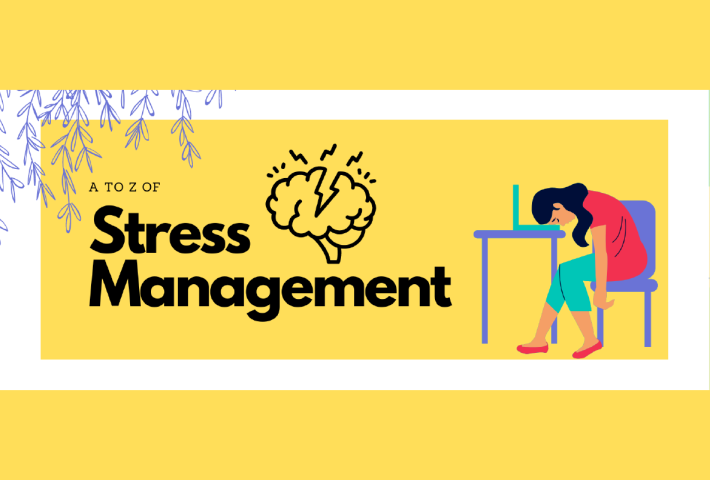
Dealing With Stress
On September 04, 2022Stress is an inevitable part of our day-to-day life. We stress before an exam, test, interview, or giving a lecture. It happens because when we stress, our mind dwells on the future. We keep circling the “what if” questions. “What if I fail the exam?”,” What if I can’t crack the entrance exam!’, “What if I don’t get the job!”. These questions are future-centric that take your mind from the present moment to be anxious about the future.
What makes something stressful:
- Something needs to be done in a short timeline/Having a deadline.
- Life transitions: Major life-changing events. For example marriage, divorce, moving out to a new place, new job
- Ambiguity: Having a lack of clarity about a situation or being clueless about anything that needs to be handled immediately.
- Desirability: When the incidents don’t match our expectations, we get stressed out
Benefits of stress management:
- Quality sleep
- Managing your weightP
- roductive work-life
- Being in a better mood
- Having good relationships in work and personal life
- Having less muscle tension

Stress Management Tips and Tricks:
- Make your mind aligned to your body: Sometimes our mind is running ahead of our body, whereas our body is tired. Suppose, your mind is constantly telling you that you have a lot of to-do’s, but your body is exhausted and not ready to face the day. Or your body is in good shape but your mind is burned out. To establish the connection between your mind and your body, start breathing exercises. Breathe in for a count of four and breathe out for a count of four.Get your consciousness to your present moment: Most people are sensitive to sound. Use your auditory system just to hear the sounds in your environment. That’s how you will feel grounded and be more in the present.
- Write down your triggers: Write down the external stimuli which trigger your stress. And jot down the points on how to deal with them.
- Maintaining a healthy diet: Eat regularly, and add high fiber to your diet plan, deficiencies in omega – 3 fatty acids can make you more vulnerable to depression and anxiety. So, consume walnut, flax seeds, and fish oil to get your body enough omega -3 fatty acids.
- Ditch the caffeine: Caffeine can lead to high blood pressure that may cause anxiety. Instead of consuming caffeine, get better sleep.
- Have a regular sleep routine: Try to avoid any electronic devices for 1 hour before you go to sleep. You may try to read books or journal your thoughts to relax your mind and body for a night of productive sleep.
- CBT stress management:When you find yourself in a stressful situation or your mind gets a hint of threat, your physiological and psychological stress symptoms may become more terrible. In this case, cognitive behavioral therapy will help you to have a new perspective, regain control over the situation, and adopt coping strategies that will combinedly help you to deal with the situation.











